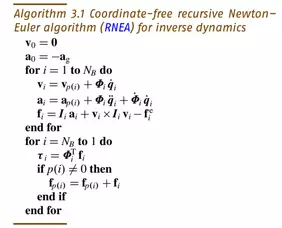My working experience of mathematics doesn't extend meaningfully beyond that of an American High-School, so I don't really know where to start, other than a passing interest in learning Calculus. What's the most interesting fields and where should one start to improve their knowledge?
There are a bunch of people in this thread who are
waaaaay better at math than I am but I just wanted to say that programming is definitely a way to make math more accessible and even more vivid. I don't do too well with the axiom-theorem-proof format except with the style of logic proofs you can see in books like Copi and others, where it's possible to check the correctness of an inference by syntax alone. (In general, writing proofs seems to me a bit more of an art form, if you can believe it, even though there are hard rules.) I'm under the impression a lot of people find the axiom-theorem-proof format kinda dull too, even if it is necessary. Programming will definitely put the rigor of your thinking to the test, as you will get nonsense answers or the compiler shitting itself if every detail isn't hammered down, and the result is often something that you can immediately benefit from in other ways. Also, writing in human languages inevitably leads to vagueness, even when the author is careful. As a result, even in some Springer books that tend towards a more traditional approach to exposition, you will see passages that look like this:

It's definitely a very valid different point of view as compared to math as one typically learns it in school. It occurred to me while programming Smalltalk, which does
not have algebraic order of operations like most other programming languages do (that instead has to be enforced with parentheses where not typically used) that PEMDAS is just one possible convention out of many. (I suspect prioritizing the "EMD" part over the "AS" part might have to do with the fact that traditionally applied math pretty much all had to do with physics and chemistry where the former operations are more important than the latter, though there could be other reasons.) When you learn to program, no field of mathematics or area of application (or lack thereof) will be off limits to you. Logic (obviously), set theory, probability, calculus, linear algebra, you name it. You can even explore the very foundations of mathematics, though that's best left for others here to explain. Also,
SageMath is a very nice free and open source computer algebra system that ties a zillion different software packages together with Python. One last thing to consider: "Beware of bugs in the above code; I have only proved it correct, not tried it." —Donald Knuth


